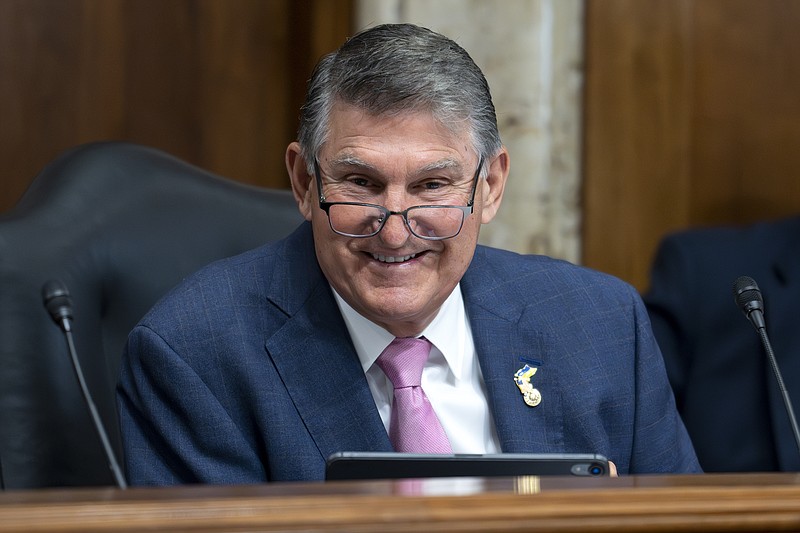By LISA MASCARO, KEVIN FREKING, STEPHEN GROVES and FARNOUSH AMIRI
Associated Press
WASHINGTON (AP) -- Days away from a default crisis, the U.S. Senate dashed on Thursday to wrap up work on a debt ceiling and budget cuts package that overwhelmingly cleared the House, aiming to send it to President Joe Biden's desk to become law before the fast-approaching deadline.
Senate Majority Leader Chuck Schumer said the chamber was digging into the bill that Biden negotiated with Speaker Kevin McCarthy and would "keep working until the job is done."
He warned of a crush of ideas from senators anxious to revise the bill's budget cuts and environmental policy changes, but said, "There is no good reason, none, to bring this process down to the wire."
Passage in the Senate will require cooperation between Democrats and Republicans, much the way the narrowly divided House was able to approve the compromise late Wednesday night. Fast action is vital if Washington is to meet next Monday's deadline when Treasury has said the U.S. will start running short of cash to pay its bills, risking a devastating default.
Having remained largely on the sidelines during much of the Biden-McCarthy negotiations, several senators are insisting on debate over their ideas to reshape the package. But making any changes at this stage seemed unlikely, and even opponents of the final deal say they will not hold it up.
Like Schumer, Senate Republican leader Mitch McConnell signaled he wanted to waste no time.
Touting the House package with its budget cuts, McConnell said Thursday, "The Senate has a chance to make that important progress a reality."
The hard-fought compromise pleased few in its entirety, but lawmakers assessed it was better than the alternative -- economic upheaval at home and abroad if Congress failed to act. Tensions had run high in the House as hard-right Republicans refused the deal, but Biden and McCarthy assembled a bipartisan coalition to push to passage on a robust 314-117 vote.
"We did pretty dang good," McCarthy, R-Calif., said afterward.
Biden, watching the tally from Colorado Springs where Thursday he is scheduled to deliver the commencement address at the U.S. Air Force Academy, phoned McCarthy and the other congressional leaders after the vote. In a statement, he called the outcome "good news for the American people and the American economy."
The White House turned its attention to the Senate, its top staff phoning individual senators.
Overall, the 99-page bill would make some progress in curbing the nation's annual budget deficits as Republicans demanded, without rolling back Trump-era tax breaks as Biden had wanted. To pass it, Biden and McCarthy counted on support from the political center, a rarity in divided Washington.
The compromise package restricts spending for the next two years, suspends the debt ceiling into January 2025 and changes some policies, including imposing new work requirements for older Americans receiving food aid and greenlighting an Appalachian natural gas line that many Democrats oppose. It bolsters funds for defense and veterans, and cuts back new money for Internal Revenue Service agents.
Raising the nation's debt limit, now $31.4 trillion, ensures Treasury can borrow to pay already incurred U.S. debts.
